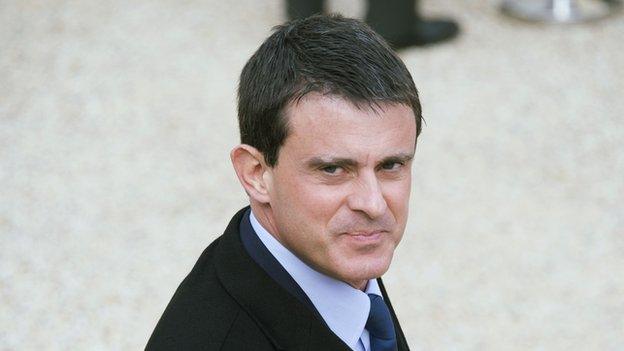Profile: France's Prime Minister Manuel Valls
- Published
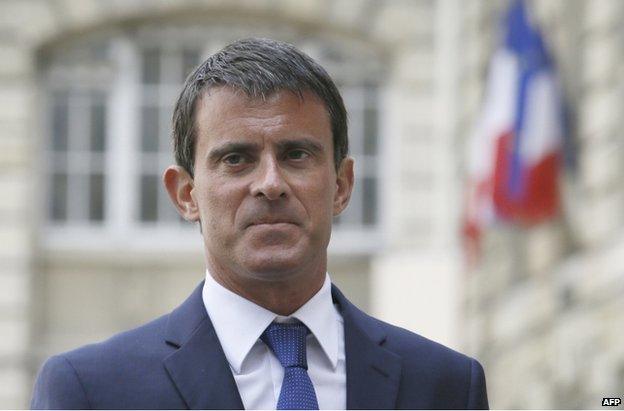
French Prime Minister Manuel Valls has the dubious honour of leading one of his country's shortest-lived governments but he is grappling with formidable challenges.
Supporters of the tough-talking Socialist politician point to Europe's general economic crisis when assessing his record in tackling high unemployment and feeble growth.
On the surface, he has split his party, alienating the left wing by antagonising radical favourites like Economy Minister Arnaud Montebourg into resigning.
Yet some would say he has merely exposed the party's long-standing deep divisions, cracks President Francois Hollande sought to paper over when he appointed Mr Valls, his most popular cabinet minister, prime minister on 31 March after a disastrous showing at local elections.
His new government, dubbed Vals II, now has the task of rescuing the Hollande presidency.
'Bullfighter'
"At the slightest threat, like a bullfighter, Manuel Valls straightens up, his eyes burn and he enters the arena proudly" - so wrote France's conservative daily Le Figaro in a commentary after his appointment as prime minister.
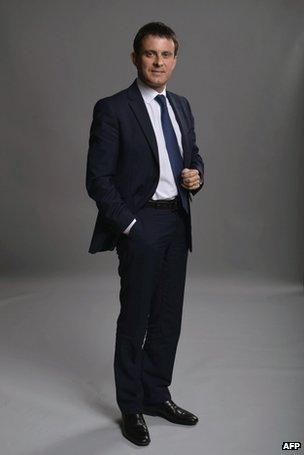
The metaphor is pointed: he was born in Barcelona, Spain, on 13 August 1962 and did not obtain French citizenship until he was 20.
At the height of the European election campaign in May, he was back in Barcelona for a Socialist campaign rally.
Speaking in Catalan, he told the audience: "As a child born in Barcelona, I would never have thought that one day I would come back as prime minister of France. And here I am among you. Spanish and Catalan. Then French, fully French, passionately French."
His "passionate" embrace of his new country is one reason pundits like to compare him to former conservative President Nicolas Sarkozy, also an outsider albeit one born in France to an immigrant father.
Another reason is the hard line Mr Valls adopted as interior minister under his predecessor as prime minister, Jean-Marc Ayrault.
Presidential ambitions
Like Mr Sarkozy when he was interior minister, Mr Valls became identified with expulsions of jobless Roma (foreign Gypsies) living in makeshift camps on the margins of French cities. He was also quick to visit crime scenes - "a very Sarkozy-like habit", according to Europe 1 radio.
This Sarkozy comparison, Mr Valls once said, "doesn't bother me if it refers to his energy and combative spirit".
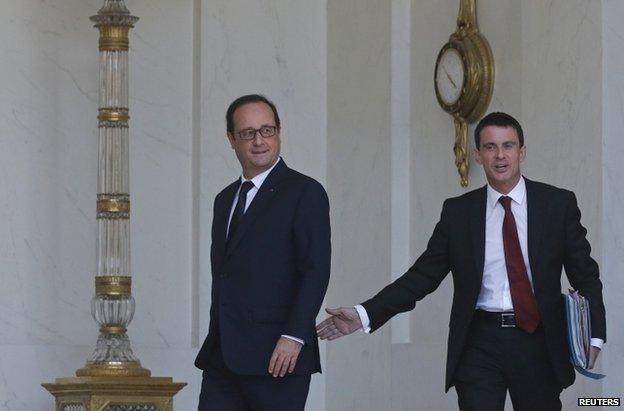
Manuel Valls (R) with Francois Hollande at the Elysee Palace in July
His tough policies can be seen running back through his career in Socialist politics, which began at the age of 17, even before he had obtained his French citizenship.
As mayor from 2001 to 2012 of one of France's poorest towns, Evry in the southern suburbs of Paris, he campaigned against halal supermarkets in the town, arguing that they were divisive.
Dismissed by the Socialist left as a social democrat like Britain's former Prime Minister Tony Blair, he won just 6% of the vote at the Socialist presidential primaries in 2011, trailing Mr Montebourg who took 17%.
The kind of anti-globalisation advocated by Mr Montebourg was an "ideological simplification which nurtures fears", Mr Valls argued at the time.
Having the two in government together was never going to be easy.
'Bubble burst'
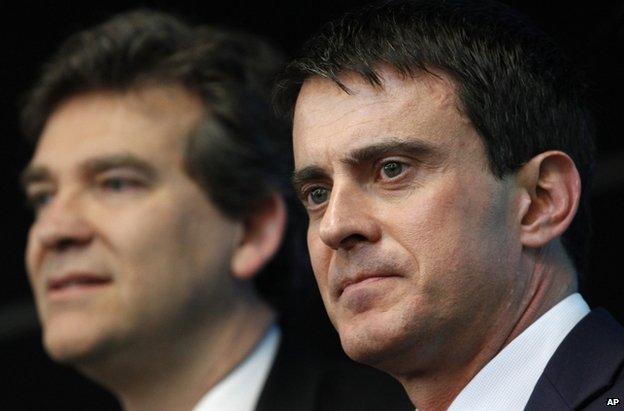
Manuel Valls (R) with Arnaud Montebourg on a visit to defence and electronic company Thales in Gennevilliers, outside Paris, in April
"It's either Montebourg or me," Mr Valls is said to have told President Hollande after the economy minister publicly attacked Germany's "obsession" with economic austerity and, by implication, the French government's own spending cuts.
Thus fell the first government of Manuel Valls after just 147 days in office, one of the shortest-lived cabinets since France's Fifth Republic was formed in 1958.
"He has shown himself as man of authority but it is too early to say if he is an effective prime minister," one French journalist told BBC News.
"He's a new kind of Socialist, not typical of those we have seen in the past 20 years. The way he talks and presents things makes him more popular with the right than the left, and hardcore Socialists hate him."
The outgoing government "lived in a bubble of real leftists and social democrats but the bubble is now burst," added the journalist, who declined to be named.
'Man of his time'
A Socialist party adviser, who also did not wish to be named, told BBC News that the real problem was not party divisions but the general economic crisis facing most EU states.
In the opinion of the adviser, the big test for Mr Valls now is whether he can see through real reform, and namely the Socialists' flagship project of streamlining regional government.
The territorial reform bill, which will refashion France's 22 regions into 13, angered some radical leftists in the government when it was passed by the lower house of parliament in July. It is due to go before the Senate this autumn.
Success with this policy would look good for Mr Valls in the run-up to a future presidential election, by which time the crisis might have passed.
"Valls is known for his pragmatism and at some point, the country needs a guy like this," he added. "But it is too soon to say if he is good for the Socialist party."
- Published25 August 2014
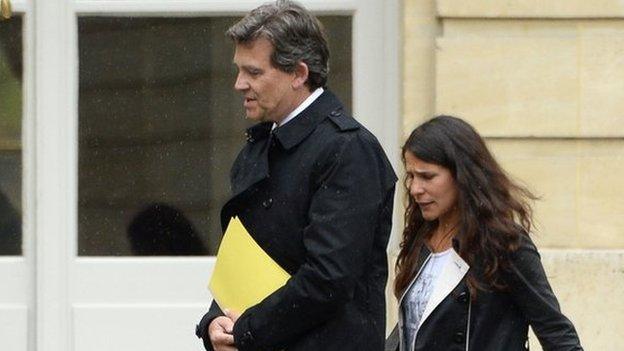
- Published8 April 2014
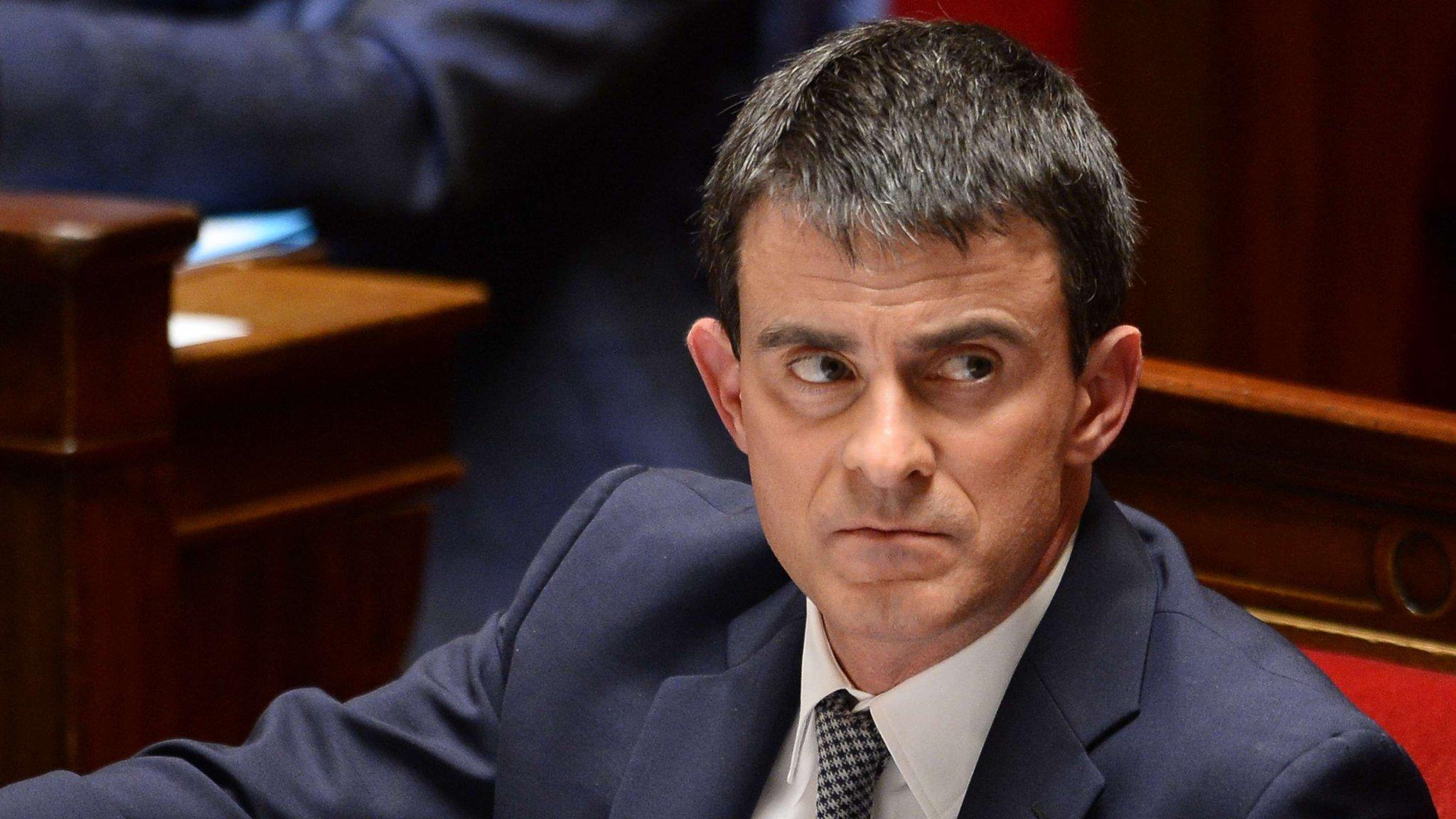
- Published31 March 2014
